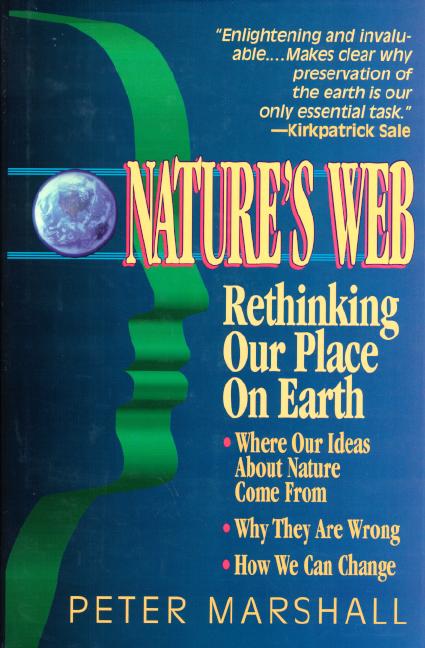“We know that meeting the environmental crisis requires urgent action. But we’ve come to realize, sometimes painfully, that it’s easy to repeat the conceptual mistakes of ages past, and to overlook older wisdom. This book will help—help a lot!”—Ben McKibben, author of The End of Nature
Enlightening and valuable
“An enlightening and valuable survey of ecological
thought throughout the ages—massive in scope—that makes clear why
preservation of the earth is our only essential task.”—Kirkpatrick Sale,
author of Dwellers in the Land
Earthy and approachable
“For all its learning, this book is earthy
and approachable, and I think essential. No similar guide exists,
no ecologist can fail to deepen the roots of her understanding...”—Walter
Schwarz, The Guardian
An extraordinary book of great learning and intellectual insight
“Nature’s Web will do much to reconnect
us to our roots and help us develop a rather more convincing ethical
foundation to the initiatives we are involved in. It’s an extraordinary
book, of great learning and intellectual insight...written at a cracking
pace to cover the whole gamut of the history of ideas.”—Jonathon Porritt,
Resurgence
Clearly written and highly documented
“An important contribution to the development
of a new ecological world view.... This clearly written and highly
documented encyclopedic work...deserves to be a standard work.”—Edward
Goldsmith, The Ecologist
Powerful and intellectual
This powerful book provides the
first comprehensive overview of the intellectual roots of the worldwide
environmental movement—from ancient religions and philosophies to modern
science and ethics—and synthesizes them into a new philosophy of nature
in which to ground our moral values and social action. It traces the origins
and evolution of the dominant worldview that has built our industrial,
technocratic, man-centered civilization, and brought us to the current
ecological crisis.
At the same time, it uncovers an alternative
cultural tradition in the world’s different religions and philosophies
and describes how these ideas are now surfacing and coalescing to form
an ecological sensibility and a new vision of nature which recognizes the
inter-relatedness of all living things.
Finally, this book integrates
these varied traditions with modem physics and the science of ecology into
a larger philosophical whole that provides the environmental movement with
a comprehensive vision of an organic and sustainable society in harmony
with nature.
As ecological disasters
continue to threaten our planet, becoming worse with every passing moment
of indifference, it has become clear that we must take action. We must
change our relationship with nature, and return to the days when our lives
were intimately connected to and dependent upon the natural world. Nature’s
Web lays the foundations for that change by explaining where our complex
ideas about nature come from, why they are wrong, and what we can do to
change them.
Edward Goldsmith of The
Ecologist writes that Nature’s Web is an “important contribution
to the development of a new ecological worldview . . . [that] deserves
to be a standard work.” Bill McKibben affirms that “This book will help
- help a lot.”
PETER MARSHALL has a doctorate in the History of Ideas and has taught philosophy and literature at several British universities. His previous books include William Goodwin, Journey Through Tanzania, Into Cuba, Cuba Libre: Breaking the Chains?, William Blake: Visionary Anarchist, and Demanding the Impossible: A History of Anarchism. He lives in Gwynned, Wales.






